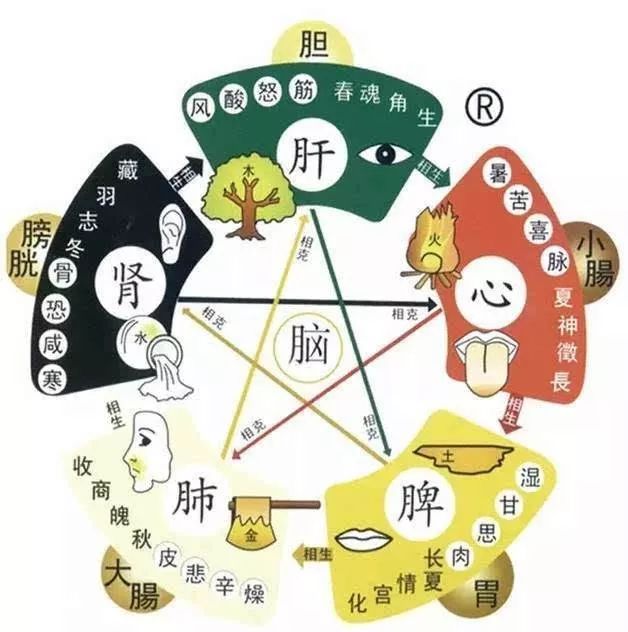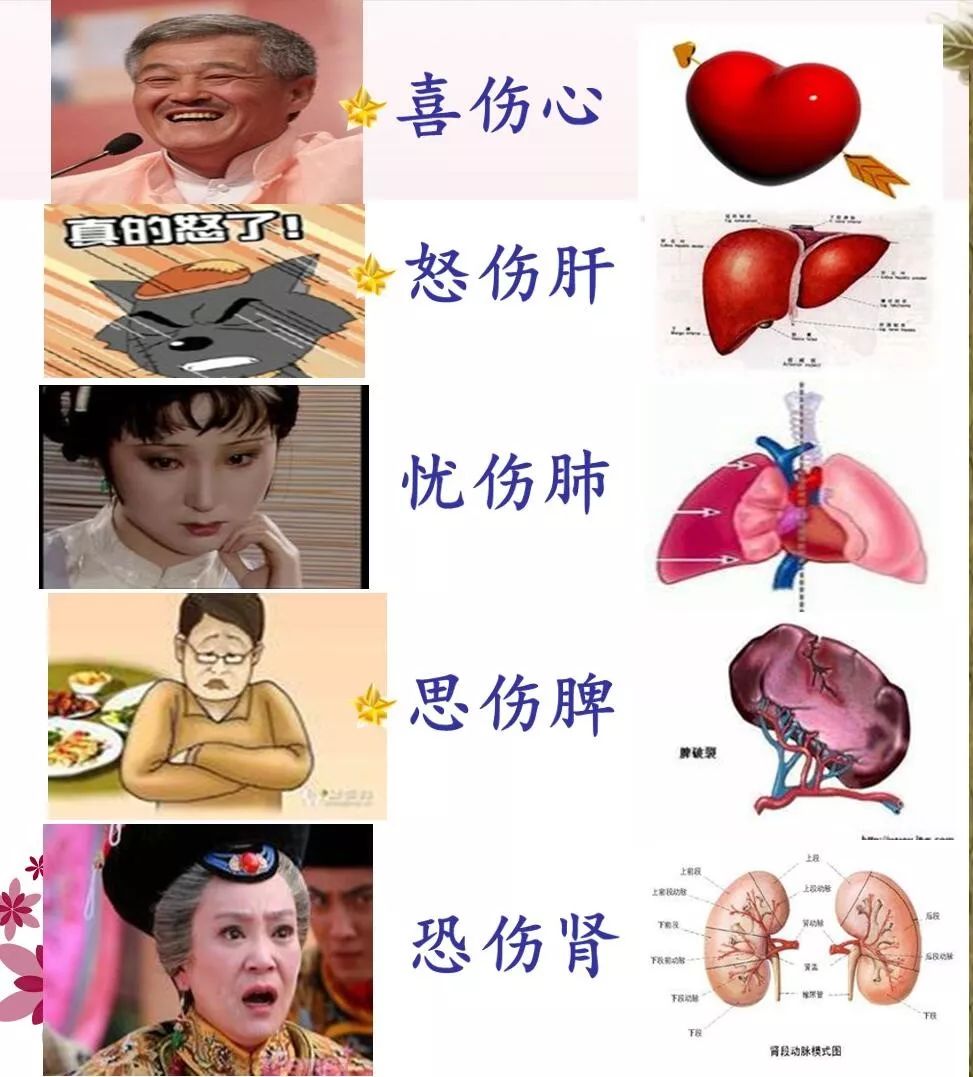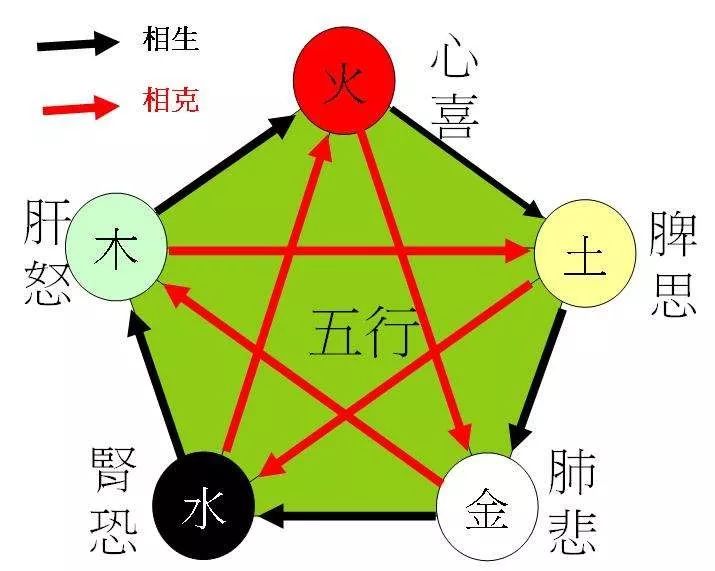In the process of recognizing the surrounding world or interacting with others, individuals are never indifferent to any person, event, or object, and always express certain emotions, such as: love and dislike, happiness or sadness, joy or sorrow, excitement or fear. As the saying goes, “When one encounters joyful events, the spirit is uplifted; after rain, the mountains appear particularly clear.” When people are happy, they feel satisfied and energetic in whatever they do; conversely, in times of sorrow, they may feel hopeless, disheartened, and perceive their surroundings as lifeless, even leading to tears or despair.

Ancient health scholars in China have long categorized the complex and variable emotions of people, referring to them as: joy (喜), anger (怒), worry (忧), thought (思), sadness (悲), fear (恐), and shock (惊). This is what is commonly known as the “seven emotions” (七情) in traditional Chinese thought.
Emotional clarity is closely related to the normal functioning of the organs. TCM posits that each organ corresponds to a specific emotion—”the heart governs joy, the lungs govern worry, the spleen governs thought, the liver governs anger, and the kidneys govern fear.”
The “seven emotions” are normal emotional activities of the human body; if these emotional changes remain within a normal range, expressing inner emotions is beneficial to the body. Conversely, if these emotions become overly intense, they can lead to the onset of various diseases. Everything has duality; once emotions become excessive, such as sudden, intense, or prolonged emotional stimuli that exceed the body’s capacity, they can impact the corresponding organs, resulting in related diseases. Thus, excessive joy can harm the heart, extreme anger can harm the liver, excessive thinking can harm the spleen, excessive sadness can harm the lungs, and excessive fear can harm the kidneys.

Emotions not only have a close relationship with the gastrointestinal system, but they also significantly affect the body’s qi (气) and blood (血). TCM believes that the five organs and six bowels are interconnected, and the five emotions and six desires can influence the functions of the five organs and six bowels, leading to dysfunction.

“Emotional Transference” as a Method for Treating Emotional Disorders
TCM has always placed great importance on the role of emotions in disease and their impact on health. Throughout history, physicians have advocated: “A good doctor must first treat the heart before treating the body.” Any illness of the heart must be treated with heart medicine to be effective.
“Emotional transference” is a unique emotional treatment and care method in TCM. It refers to the practice of shifting attention, using one emotion to suppress another, thereby diminishing or even eliminating negative emotions to maintain a positive mental state.
“Sadness can treat anger by evoking feelings of suffering; joy can treat sadness; fear can treat joy; anger can treat thought; and thought can treat fear.” Effectively utilizing these methods can significantly enhance the treatment outcomes for emotional disorders.

Modern Medicine’s Understanding of Emotional Disorders
Modern medicine also has a clear understanding of the role of emotions in disease. According to surveys, 50% to 80% of diseases are related to psychological factors. In a study of 170 cases of sudden death following intense emotional stimuli, 59% died due to personal misfortunes or the news of significant losses; 34% died in situations of danger or threat; and 7% died from excessive joy.
Foreign scholars have reported that emotional distress accounts for 74% to 76% of diseases; a hospital in the United States found that 65% of diseases are related to social adversity.

Therefore, maintaining emotional health is crucial for overall well-being. A positive mindset can promote the balance of the six bowels’ functions. Conversely, a negative mindset can disrupt the balance of the five organs and six bowels, leading to various symptoms. In the process of treating and nurturing health, it is essential to maintain a good mental state to facilitate recovery from illness.


